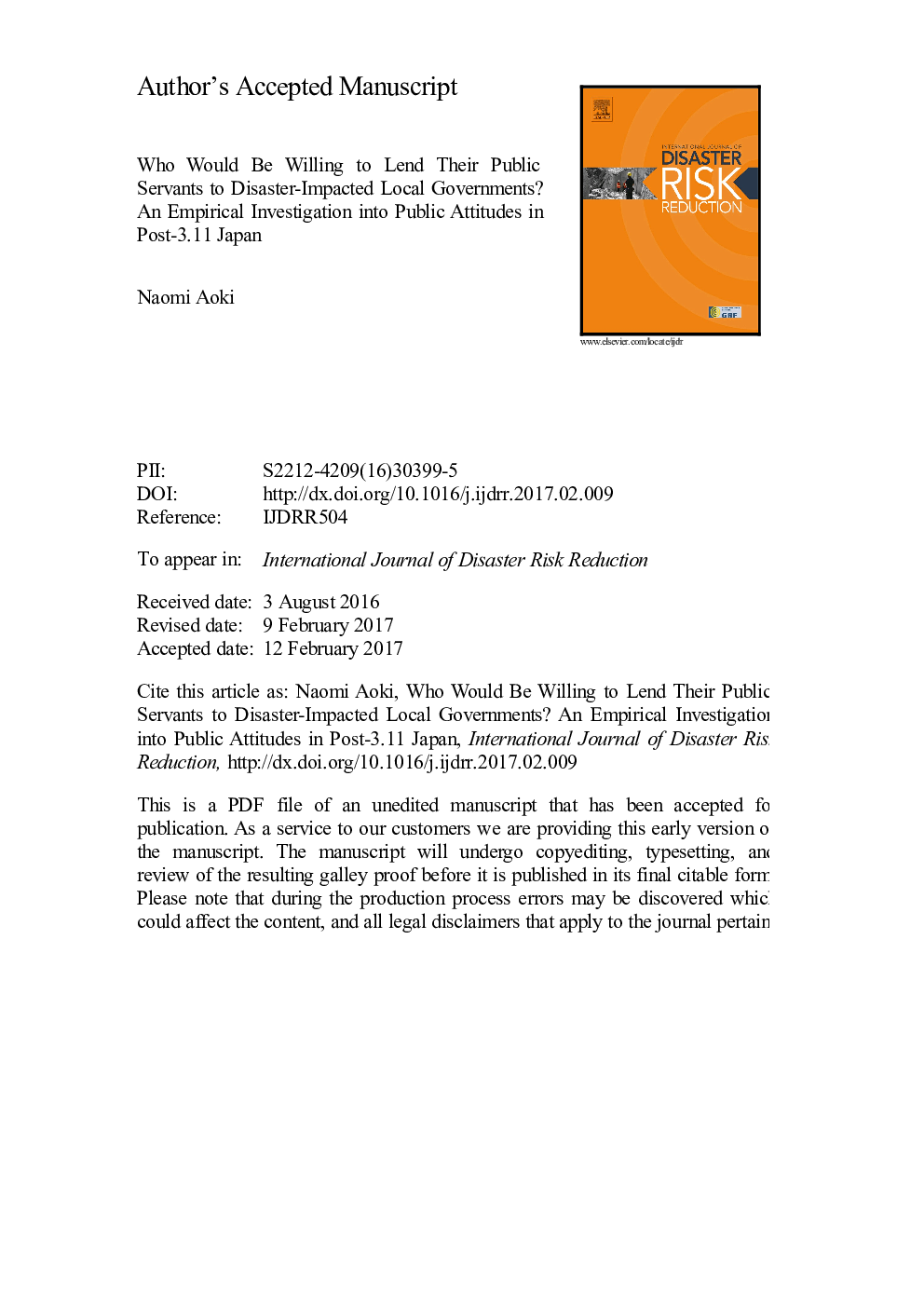| Article ID | Journal | Published Year | Pages | File Type |
|---|---|---|---|---|
| 5116054 | International Journal of Disaster Risk Reduction | 2017 | 31 Pages |
Abstract
Inspired by the severe manpower shortage faced by municipal governments hit by the Great East Japan Earthquake and the resulting tsunami, this study investigates the Japanese public's willingness to lend their municipal public servants to disaster-impacted municipalities. A nationwide survey targeted at representative Japanese citizens aged 15-79 revealed that the majority of the public expressed a willingness to lend their public servants, provided that it would not cause inconvenience, or would cause only some inconvenience, to their municipalities. Drawing on social psychology, the study asked who would be willing to help and found that being a former beneficiary of help and a former disaster victim makes a difference. Policy makers who wish to promote ex-post (after-disaster) inter-local manpower support should consider fostering a virtuous cycle of reciprocity. Decisions regarding whether or not to send manpower to needy municipalities should take into account public sentiment, together with the availability of human resources and fiscal situations. This is deemed particularly important, considering the finding that the general public and public servants, on average, have different views towards manpower support.
Related Topics
Physical Sciences and Engineering
Earth and Planetary Sciences
Geophysics
Authors
Naomi Aoki,
